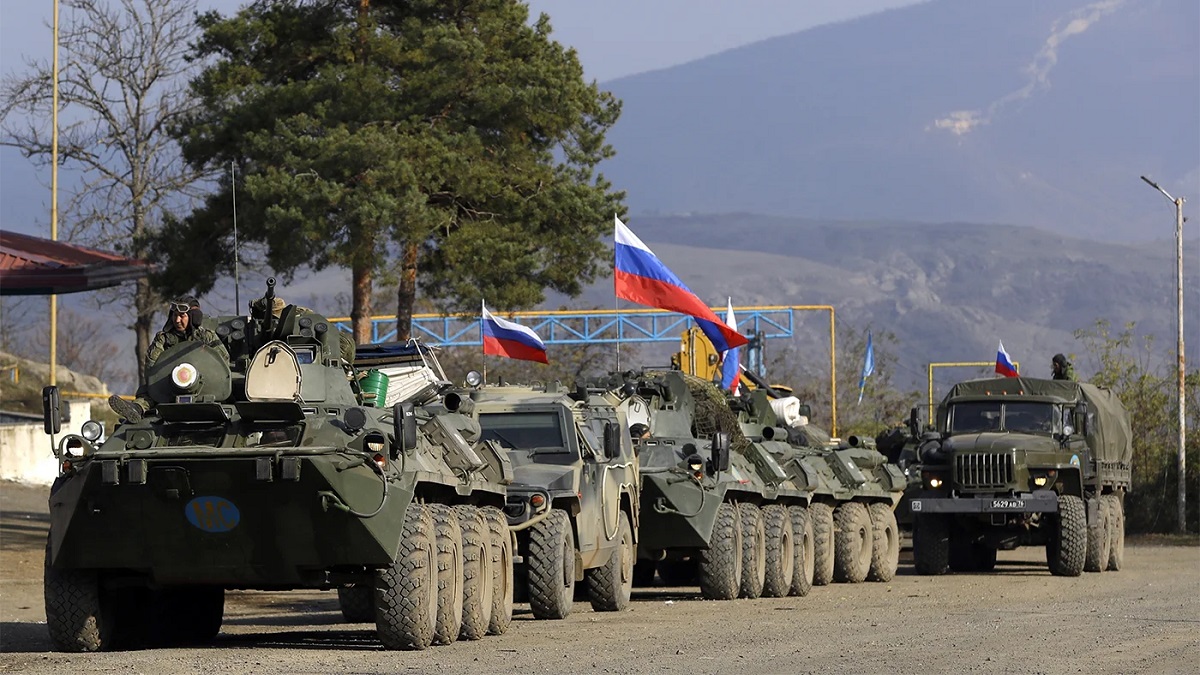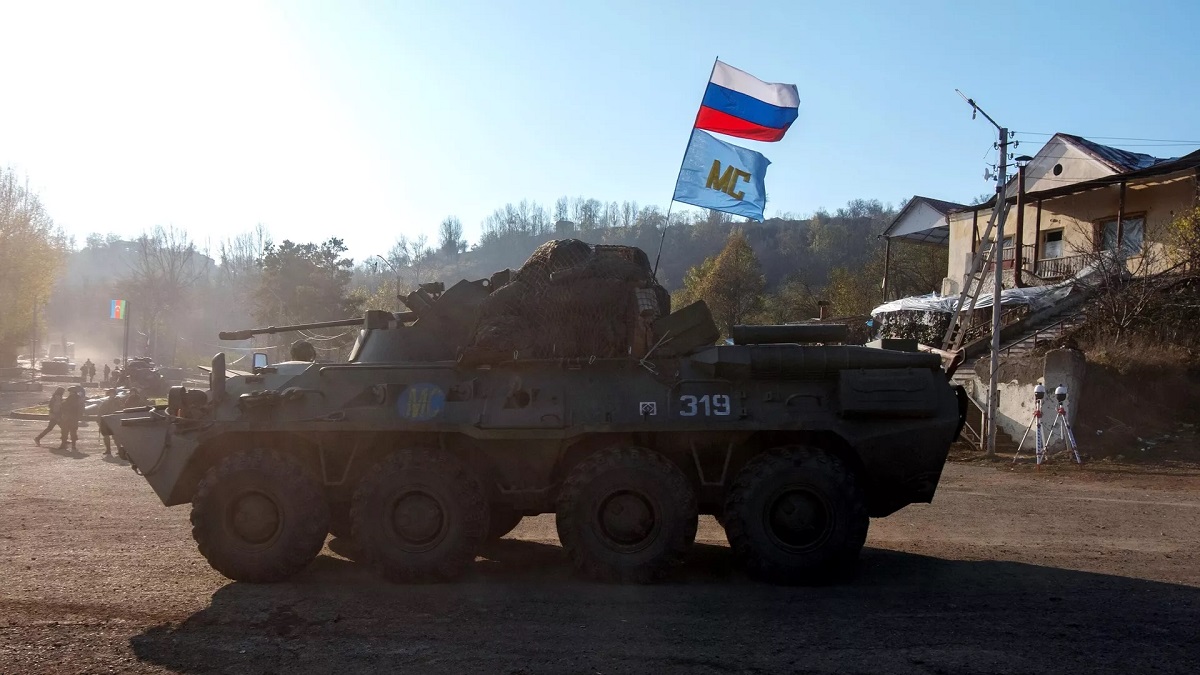Perspective from Baku: demarcating the Azerbaijan-Armenian border and the return of four villages
Azerbaijan-Armenian border delimitation begins
The delimitation of the state border between Azerbaijan and Armenia has begun with one of the most contentious points – the border between Azerbaijan’s Gazakh district and Armenia’s Tavush region. According to the agreement reached, Azerbaijan is regaining control of four villages, which in Baku were referred to as “non-enclave.”
- ‘Moscow knows the fire will be lit not in Yerevan, but in Baku’ – Armenian analysts
- “Historic event for Azerbaijan”: Analysts on the withdrawal of Russian peacekeepers from Karabakh
- Russian peacekeepers begin withdrawal from Karabakh
Last week, the process of delimitation and demarcation of the state border between Azerbaijan and Armenia saw progress. During a recent session of the delimitation commission, the parties agreed to return to Azerbaijan the so-called “non-enclave” four villages located in close proximity to the border.
These villages include Baganis Ayrım, Ashagy Askipara, Kheyrimli, and Gizilhajili in the Gazakh district of Azerbaijan.
Thus, the borders are being brought into line with the legally justified inter-republican border that existed within the framework of the Soviet Union at the time of its dissolution.
The parties also agreed to base the delimitation process on the Alma-Ata Declaration of 1991.
Azerbaijani political observers have commented on this historic moment in the resolution of the Azerbaijani-Armenian conflict.
Elkhan Shahinoglu: “A new era begins in the South Caucasus”
The return of four villages to Azerbaijan and the start of the process to clarify borders will give a boost to the peace-building efforts in the region. Baku and Yerevan have reached an agreement.
This is another successful agreement following the beginning of the withdrawal of the Russian military contingent from Karabakh. A new era is beginning in the South Caucasus.
The return of the four villages will expedite the signing of a framework agreement between the two countries. Negotiated agreements in the South Caucasus, against the backdrop of the war between Russia and Ukraine, escalating tensions in the Middle East, and the confrontation between Israel and Iran, will be beneficial to all.
The next stage will involve increasing the intensity of negotiations on the Zangezur Corridor. Time is not on Armenia’s side in this regard. If Armenian prime minister Nikol Pashinyan, as he himself expressed, desires normalization of relations with Azerbaijan and Turkey, his country must pass through this stage as well – ensuring the operation of the Zangezur Corridor.
The first agreement between Azerbaijan and Armenia, reached without the involvement of any intermediaries, has made Russia and Iran think. The United States, the European Union, and Turkey have welcomed the agreement, with statements following one after another, whereas Moscow and Tehran remain silent.
Although Moscow and Tehran repeatedly state that the countries of the region should reach agreements without the involvement of distant states, Baku and Yerevan have reached an agreement precisely without the involvement of distant countries. But Moscow and Tehran are not pleased with this.
This is because certain circles in Russia and Iran are more interested in establishing their influence over the countries of the South Caucasus than in peace in the region. An agreement between Baku and Yerevan will weaken Russia and Iran’s influence in the region.
One example of this is the Armenian prime minister Nikol Pashinyan`s statement that there is no need for Russian border guards in the Tavush region. On the same day that Baku and Yerevan reached an agreement on part of the border, Iranian Ambassador to Armenia Mehdi Subhani linked the current vulnerability of the situation in the region to the balance of power: “We (Tehran) are confident that a balance of power should be established in the South Caucasus.” In other words, Tehran, through its ambassador, wanted to say that they are against a strong Azerbaijan in the region.
Without a strong Azerbaijan, Armenia would have continued the occupation of Azerbaijani territories, and today’s agreements would not have been reached. Tehran wants the old South Caucasus back, but there is no turning back.”
Expert Natig Jafarli: “We are witnessing a turning point for the future of our region”
“Following the departure of the Russians from our country, the legal and just agreement on the four villages of the Gazakh district, and the achievement of a fundamental agreement on delimitation and demarcation, is very good news with special significance.
There were some primitive speculations that tensions in the region would rise after the withdrawal of Russian forces. But thankfully, we have seen just the opposite.
Peace is closer than ever before; we are moving step by step towards the most fantastically positive scenario for us. These are historical events; we are witnessing a turning point for the future of our region.”
Analytical Group “Şərqə baxış” (“Look to the East”): “This step was coordinated at a trilateral meeting on April 5 in Brussels”
“After reaching an agreement on the return of four villages adjacent to the Gazakh district, Pashinyan is facing significant pressure in his country. The church, diaspora, opposition, and local residents are exerting powerful resistance to Pashinyan’s decision. Armenian media, influenced by Russia, are particularly keen on covering protests against Pashinyan.
Statements from the US and Europe are supportive of Pashinyan’s retreat. It is clear that this step was coordinated at a trilateral meeting on April 5 in Brussels, and Pashinyan, relying on Western support, took such a risk. Presumably, he also calculated his strength with the support of Western countries before facing resistance within the country.
In any case, in our opinion, Azerbaijan will also strengthen Pashinyan’s hand, and during the peace process, may take steps that will hinder the creation of an anti-Pashinyan bloc in Armenia. For example, it may release several Armenian servicemen who are under arrest in Baku. We believe that for Azerbaijan, the presence of Pashinyan in power in Armenia is most important. For now…”




















